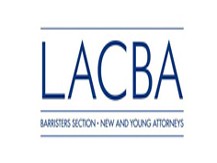Gregory J. Lederman
Gregory J. Lederman specializes exclusively in estate, trust and probate matters. Gregory J. Lederman has been certified as a specialist in estate, trust and probate law by the California Board of Legal Specialization of the State Bar of California. Gregory J. Lederman has extensive litigation experience in the area of estate, trust and probate litigation from discovery, law and motion and trial work.











